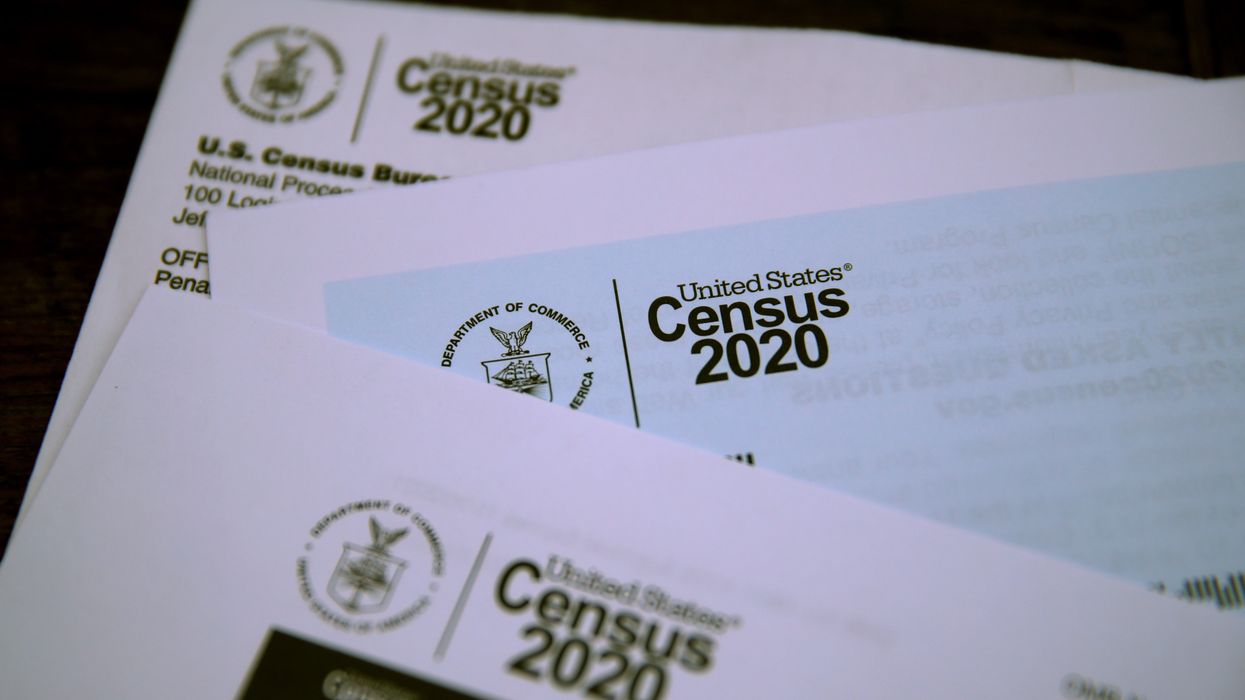Democrats and civil liberties groups are threatening legislation and lawsuits to prevent President Trump from excluding undocumented immigrants from the population counts used to apportion House seats for the next decade.
The president directed the government on Tuesday to provide the states with census numbers that exclude millions of people living in the country illegally — setting up a potential balance of powers fight as well as a constitutional dispute over whether congressional districts should be drawn based on numbers of people, as has been the long-standing practice, or only citizens.
Civil rights groups gave notice in federal court Wednesday that they would fight Trump's effort. The American Civil Liberties Union readied a separate lawsuit. The House Oversight and Reform Committee announced it would convene an emergency hearing next week and may write a bill to thwart the president. And Speaker Nancy Pelosi vowed that Democrats "will vigorously contest the president's unconstitutional and unlawful attempt to impair the census."
The Census Bureau is in the middle of its once-a-decade head count, among the most important and extensive bureaucratic undertakings of a functioning democracy. The results will not only determine how many of the 435 House seats shift to the fastest growing states at the expense of other places, but it will also provide numbers for drawing election lines at the state, county and city level. The numbers will also determine the distribution over the next decade of $1.5 trillion in federal spending that's allocated by demographic formula.
More than 62 percent of households have responded, and census takers last week started appearing at the homes where residents haven't responded. The bureau this week mailed out 34 million postcards to households reminding them to answer the census questionnaire as required by law.
"It is the policy of the United States to exclude from the apportionment base aliens who are not in a lawful immigration status," Trump said in a memorandum Tuesday. It said that states with undocumented immigrants should not be given more representatives as this would only encourage them to continue to harbor such people.
If Trump gets what he wants, which could end up requiring the Supreme Court to disregard the consensus understanding of the Constitution, the effect would be more seats shifting to Republican states instead of Democratic ones.
"The Constitution requires that everyone in the U.S. be counted in the census," Dale Ho, the voting rights chief at the ACLU, said in a statement. "President Trump cannot pick and choose. He tried to add a citizenship question to the census and lost in the Supreme Court. His latest attempt to weaponize the census for an attack on immigrant communities will be found unconstitutional. We'll see him in court, and win, again."
Last year, Trump's effort to put a citizenship question on the census was derailed by the high court, making it difficult to determine how many undocumented immigrants are in he country.
In a statement accompanying his memorandum, however, Trump noted that federal agencies "have been collecting the information needed to conduct an accurate census and inform responsible decisions about public policy, voting rights, and representation in Congress."
Under that executive order, which civil rights groups are already fighting in federal court, agencies are to provide the Commerce Department, which oversees the Census Bureau, with data and records that could be used to separate citizens and noncitizens.
The president's latest move, "if carried out, could upend the balance of power," said Sean Moulton, a senior policy analyst at the Project on Government Oversight. "This move by the White House to ignore a significant percentage of the population and summarily redefine how we apportion representative power in this country is inappropriate and potentially unconstitutional."
Democratic Rep. Jamie Raskin of Maryland said Trump's action highlights his "inexhaustible contempt for our constitutional system and the rule of law. The U.S. Constitution requires 'an actual enumeration' of the 'whole number of persons' in the country for 'apportioning representatives among the states in Congress.'"
As evidence that his action is legal, Trump cited a unanimous 1992 Supreme Court decision that found the Commerce Department could apportion members of the military serving overseas at their home of record: "Congress has provided that it is 'the president's personal transmittal of the report to Congress' that 'settles the apportionment' of representatives among the States, and the president's discretion to settle the apportionment is more than ceremonial or ministerial and is essential "to the integrity of the process."
Groups in favor of less immigration praised the decision.
"The process of including illegal aliens in the census count for the purpose of reapportionment, as it has been practiced in recent decades, is fundamentally unfair to law-abiding Americans, and the president should be applauded for taking long overdue action to safeguard their interests and constitutional rights," said Dan Stein of the Federation for American Immigration Reform.
However, the courts have rejected attempts by FAIR to remove undocumented immigrants from apportionment. The Supreme Court already struck down Trump's attempt to add a citizenship question to the census because it was added with the intention of undercounting undocumented immigrants and lowering the amount of funds and representatives these areas have.



















Trump & Hegseth gave Mark Kelly a huge 2028 gift